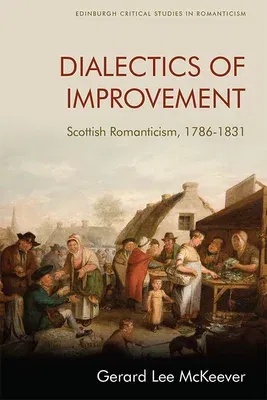Gerard Lee McKeever
(Author)Dialectics of Improvement: Scottish Romanticism, 1786-1831Paperback, 29 December 2021

Qty
1
Turbo
Ships in 2 - 3 days
Only 3 left
Free Delivery
Cash on Delivery
15 Days
Free Returns
Secure Checkout

Part of Series
Edinburgh Critical Studies in Romanticism
Print Length
232 pages
Language
English
Publisher
Edinburgh University Press
Date Published
29 Dec 2021
ISBN-10
1474441688
ISBN-13
9781474441681
Description
Product Details
Author:
Book Format:
Paperback
Country of Origin:
US
Date Published:
29 December 2021
Dimensions:
23.39 x
15.6 x
1.24 cm
ISBN-10:
1474441688
ISBN-13:
9781474441681
Language:
English
Pages:
232
Publisher:
Weight:
331.12 gm